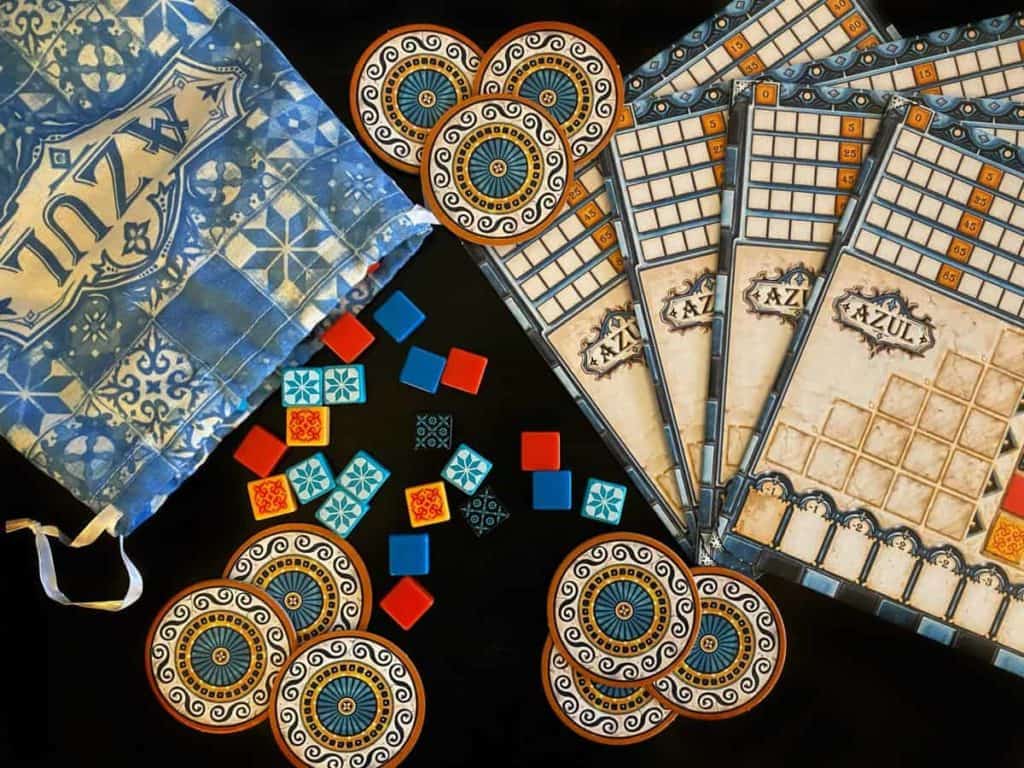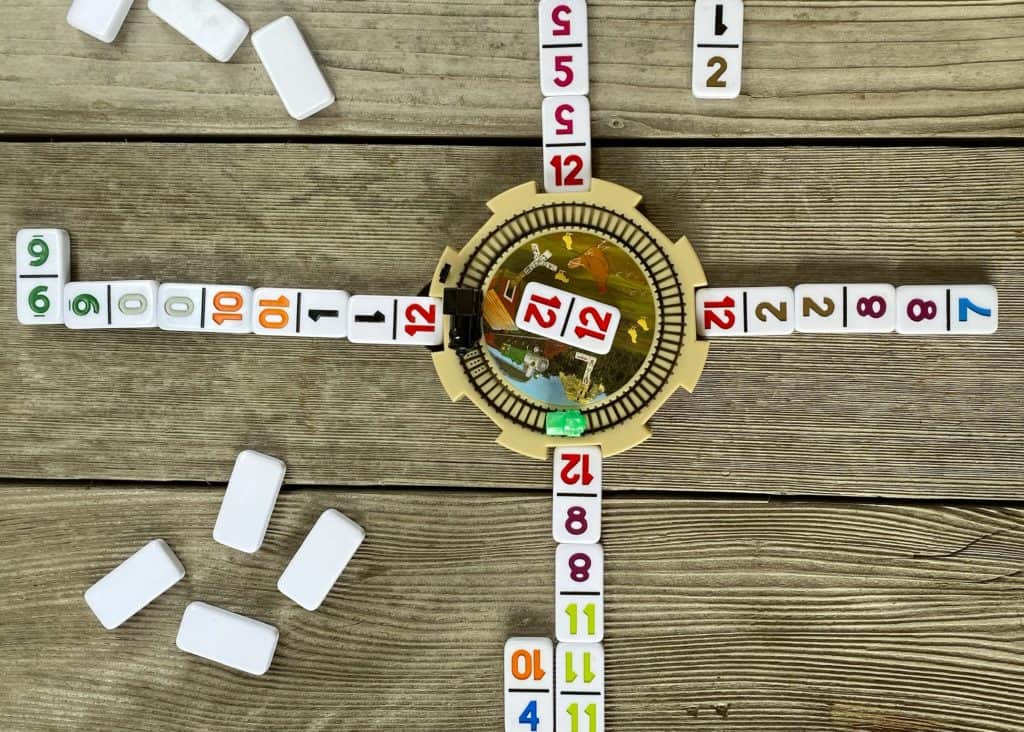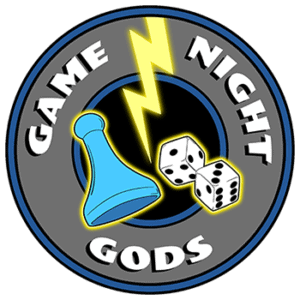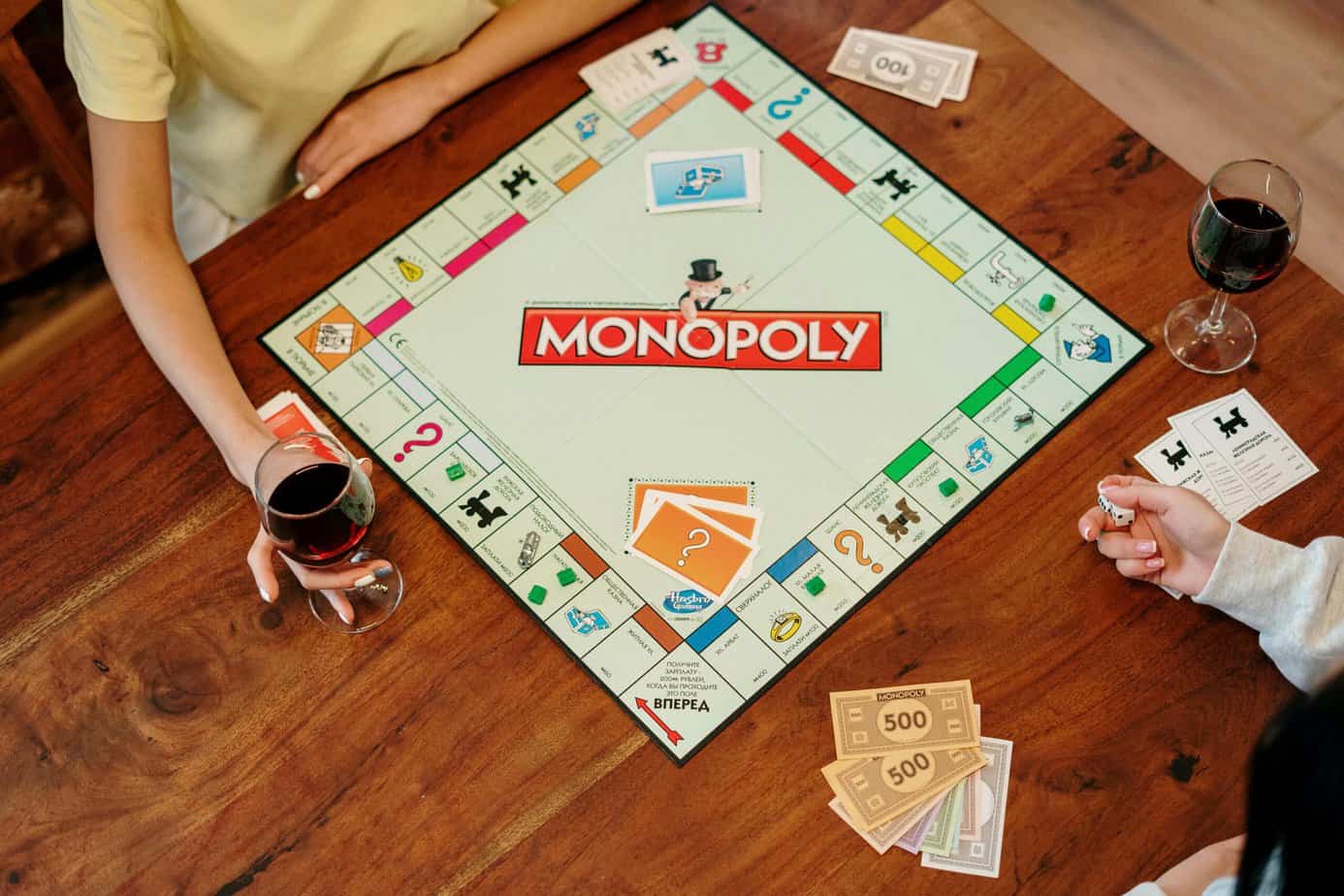Board games have been a beloved form of entertainment for centuries, offering a unique way for people to gather, strategize, and enjoy each other’s company. From ancient games like Chess and Go to modern hits like Settlers of Catan and Ticket to Ride, board games continue to captivate players of all ages and backgrounds. But beyond just being fun, board games also provide a wealth of benefits, from fostering social interaction to developing critical thinking skills.
Understanding the history, types, and common terms of board games can help you appreciate their enduring appeal, while learning how to choose the right game for you ensures an enjoyable experience. In today’s world, where digital distractions are constant, board games remain relevant by offering a refreshing way to engage, think, and connect with others.
Feel free to dive right in or jump to a specific section below!
What is a Board Game?
A board game is a tabletop game that involves counters or pieces moved across a pre-marked surface or “board,” following a set of rules. Players typically compete or cooperate to achieve specific goals, which may involve strategy, luck, or a combination of both. Board games vary in complexity, ranging from simple, family-friendly games like “Monopoly” or “Snakes and Ladders” to more intricate and strategic games like “Settlers of Catan” or “Chess.”
They can involve various types of gameplay, such as dice rolling, card drawing, or resource management, and are designed to provide entertainment, social interaction, and intellectual challenge.

The History of Board Games
The history of board games dates back thousands of years, with early examples found in ancient civilizations across the globe. One of the oldest known board games is Senet, which originated in Egypt around 3100 BCE. Senet was played on a grid of 30 squares, and it is believed to have been a game of strategy, involving the movement of pieces based on the roll of dice-like sticks. Ancient Egyptians considered the game not only a pastime but also a reflection of the journey to the afterlife, with spiritual significance linked to the gods and the concept of fate.
Another early board game is the Royal Game of Ur, originating in Mesopotamia around 2500 BCE. It was a race game, and archeologists have found its boards in royal tombs, suggesting it had a special status.
As time went on, board games evolved across different cultures. Chess, one of the most famous board games, is believed to have originated in India around the 6th century CE, where it was known as Chaturanga. The game spread to Persia, where it became Shatranj, and later to Europe, where it developed into modern chess. Go, a game of abstract strategy, is another ancient game that originated in China over 2,500 years ago. It spread across East Asia and remains one of the most complex and strategically demanding games in the world.
In the modern era, the industrial revolution and mass production allowed board games to become more widely available. In the 20th century, classic board games like Monopoly (1935), Scrabble (1938), and Risk (1957) emerged, becoming staples in family entertainment. The board game industry experienced a resurgence in the late 20th and early 21st centuries, with the rise of more intricate, strategic games like Settlers of Catan (1995) and Ticket to Ride (2004), which have brought board gaming to new levels of popularity across all age groups.
Today, board games continue to thrive, with new innovations and genres emerging, ranging from cooperative games to immersive storytelling experiences.
Types of Board Games
There are many different types of board games, each with its own unique gameplay and objectives. Here are some of the most common types of board games:
- Abstract Strategy Games: These games focus on logic and strategic decision-making without relying on chance. Examples include Chess and Go, where players use tactics to outmaneuver their opponent without random elements like dice rolls.
- Eurogames: Also known as German-style board games, these emphasize strategy, resource management, and player interaction, with minimal luck. Games like Settlers of Catan and Ticket to Ride fall into this category, offering engaging and balanced gameplay.
- Ameritrash Games: Known for their thematic elements, detailed miniatures, and dice rolling, Ameritrash games focus on storytelling and adventure. Games like Risk and Zombicide often involve a mix of luck and strategy, with conflict-driven mechanics.
- Cooperative Games: In these games, players work together to achieve a common goal, often against the game itself. Pandemic and Arkham Horror are examples where teamwork and planning are essential for success.
- Deck-Building Games: Players start with a basic set of cards and gradually build a more powerful deck over the course of the game. Dominion and Clank! are popular examples, where strategy is required to optimize a deck and outplay opponents.
- Party Games: These are designed for large groups, with a focus on social interaction and fun, often featuring simple rules and lighthearted themes. Codenames, Charades, and Pictionary are common choices for casual gatherings.
- Roll-and-Move Games: Players roll dice to move their pieces across the board, often relying heavily on luck. Monopoly and Snakes and Ladders are classic examples, where movement is determined by dice rolls rather than strategy.
- Worker Placement Games: Players place tokens on the board to perform actions or gather resources, often requiring careful planning and efficiency. Agricola and Lords of Waterdeep are examples where players compete for limited resources and space.
- Tile-Laying Games: Players place tiles on the board to create patterns, complete tasks, or build territories. Carcassonne and Azul are well-known tile-laying games, where spatial strategy is key to success.
- Dexterity Games: These games rely on physical skill, such as balancing, flicking, or stacking pieces. Jenga and Flick ’em Up are examples where hand-eye coordination plays a major role in gameplay.
- Trading/Negotiation Games: In these games, players must trade resources, negotiate deals, or form alliances to succeed. Catan and Diplomacy are examples where diplomacy and bartering are central to winning.

Why Board Games Are Still Relevant Today
Board games remain relevant today because they offer a unique form of social interaction that digital entertainment often lacks. In an age dominated by screens and online experiences, board games provide face-to-face engagement, fostering communication, teamwork, and friendly competition. Whether played with family, friends, or in gaming communities, these games encourage people to gather, share experiences, and build connections in a way that virtual gaming sometimes struggles to replicate. The tactile nature of moving pieces, drawing cards, and rolling dice adds a physical dimension that enhances the overall experience, making it more immersive and enjoyable.
Furthermore, board games appeal to a broad range of interests and skill levels. Modern board games have evolved significantly from the simple roll-and-move mechanics of older classics like Monopoly. Today’s games offer a wide variety of themes, from fantasy and adventure to strategy and puzzle-solving, ensuring that there is something for everyone. The diversity of gameplay types—whether cooperative, competitive, or narrative-driven—keeps the medium fresh and exciting, appealing to both casual players and serious enthusiasts. This wide accessibility has contributed to the resurgence of board games, particularly with the rise of Eurogames and modern classics like Settlers of Catan, which have introduced new generations to tabletop gaming.
Board games also provide a mental challenge and a chance to unplug from digital distractions. Many of them, particularly strategy or puzzle-based games, require critical thinking, problem-solving, and forward planning. This makes them not only entertaining but intellectually stimulating, offering an engaging way to challenge the mind. For families, educators, and those looking to limit screen time, board games present a wholesome and rewarding alternative to video games or television, blending entertainment with personal interaction and mental exercise.
In a fast-paced world where technology permeates every aspect of life, board games offer a slower, more thoughtful form of entertainment that fosters personal connection, critical thinking, and fun. Their enduring appeal lies in their ability to adapt and evolve while staying true to the fundamental joy of gathering around a table to play.
How to Choose the Right Board Game for You
Choosing the right board game for you depends on several factors, including your interests, the size of your group, and the type of experience you’re looking for. The first step is to consider the theme or genre that excites you the most. Are you drawn to fantasy worlds, historical settings, or perhaps something light-hearted and comedic? For instance, if you enjoy strategy and resource management, a game like Settlers of Catan might be a great fit. If you’re more interested in storytelling and narrative-driven games, something like Gloomhaven or Betrayal at House on the Hill could be more appealing. Defining the type of gameplay and theme you enjoy will help narrow down the options.
Next, consider the group size and dynamics. Some board games are better suited for smaller groups, while others board games shine with a larger number of players. For example, Ticket to Ride or Codenames are great for larger groups and parties, whereas games like Patchwork or Hive are excellent two-player games. Additionally, think about the level of competition your group enjoys. If you prefer cooperative experiences, games like Pandemic or Forbidden Island let players work together towards a common goal, which can foster teamwork and a shared sense of accomplishment. On the other hand, if you thrive on competition, a game like Risk or Carcassonne may be more your style.
Another important factor to consider is the complexity and time commitment. Some games, like Monopoly or Chess, can be played by almost anyone with minimal instructions, while others, like Twilight Imperium or Terraforming Mars, require more time to learn and play. If you’re new to board gaming or looking for something quick and easy to play, a game with straightforward rules and shorter playtime might be ideal. For more experienced players or those seeking a deeper challenge, complex strategy games can provide hours of immersive entertainment.
Finally, think about replayability and long-term enjoyment. Some games, especially those with expansions or random elements like Dominion or Carcassonne, offer a new experience every time you play, keeping the game fresh and engaging. Others, like Exit or Unlock!, provide a one-time experience similar to an escape room, which may be perfect for players looking for a novel and thematic challenge. Considering these factors will help you choose the right board game that suits your preferences and enhances your gaming experience.

Common Board Game Terms and Jargon
Here are some common board game terms and jargon that will help you better understand the rules and mechanics of various games:
- Meeple: A small, person-shaped game piece used to represent a player’s units or characters on the board. This term became popular through games like Carcassonne.
- Victory Points (VP): Many games use victory points to determine the winner. Players accumulate VP throughout the game by completing certain tasks, and the player with the most points at the end wins. Examples include Catan and 7 Wonders.
- Dice Rolling: A mechanic where dice are rolled to introduce an element of chance into the game. Games like Monopoly and Risk rely heavily on dice rolling for player movement and combat.
- Resource Management: A game mechanic where players must collect, trade, and allocate resources (like wood, stone, or food) to accomplish objectives. Popular in games like Catan and Agricola.
- Worker Placement: A mechanic where players place tokens (workers) on specific spaces to take actions or gather resources. Agricola and Lords of Waterdeep are classic examples of worker placement games.
- Co-op (Cooperative Game): In cooperative games, players work together as a team to achieve a shared objective, such as in Pandemic or Forbidden Island. Everyone wins or loses together.
- Deck Building: A game mechanic where players build a personalized deck of cards during the game to improve their hand. Each player starts with a small set of cards and gradually adds better cards. Examples include Dominion and Ascension.
- Hand Management: A mechanic where players must carefully manage their hand of cards to achieve the best results. Games like Ticket to Ride and 7 Wonders use this mechanic.
- Tile Placement: Players place tiles on the board to create a game space, often building paths, cities, or territories. Games like Carcassonne and Azul use tile placement as a core mechanic.
- Area Control/Area Majority: Players compete to control certain areas of the board by having the most influence or units in that region. Games like Risk and El Grande rely on area control.
- Drafting: A mechanic where players take turns choosing cards, tiles, or resources from a shared pool. 7 Wonders and Blood Rage both use drafting to let players build their strategies.
- Rondel: A type of game mechanic where players move their pieces around a circular track (the rondel) to select actions. This limits the number of available actions, as seen in games like Imperial.
- Player Elimination: In games with player elimination, once a player loses all their pieces or resources, they are removed from the game. This is common in older games like Risk and Monopoly.
- Modular Board: A game board that is made up of multiple pieces, allowing for different layouts and setups each time the game is played. Games like Betrayal at House on the Hill and Everdell have modular boards.
- Luck/Randomness: Some games involve elements of luck, where chance influences the outcome. This could be through dice rolls, card draws, or other random elements. Monopoly and Candy Land are examples where luck plays a large role.
Understanding these terms can make learning new games easier and help you communicate with other players more effectively!
The Benefits of Playing Board Games
Playing board games offers a range of benefits, from social to cognitive and emotional. One of the primary advantages is that they encourage face-to-face interaction, helping to strengthen relationships. Whether played with family, friends, or new acquaintances, board games create a shared experience that fosters communication and teamwork. Cooperative games, in particular, encourage players to work together toward a common goal, while competitive games promote friendly rivalry. These social interactions can improve interpersonal skills, helping people bond and build connections.
Board games also provide mental stimulation and challenge. Many games require strategic thinking, problem-solving, and forward planning, engaging the brain in a fun and interactive way. Games like Chess, Go, or Pandemic involve critical thinking and decision-making, which can help improve cognitive functions such as memory, logic, and concentration. Regularly engaging in such mentally challenging activities has been shown to benefit cognitive health, potentially lowering the risk of cognitive decline as people age.

Additionally, board games offer emotional and psychological benefits. They provide a fun and relaxing way to unwind, offering a break from the fast-paced digital world. Playing games can reduce stress and boost mood, as they allow people to focus on something enjoyable in a group setting. The sense of achievement players feel when solving puzzles or winning a game can also boost self-esteem and confidence. In family settings, board games can teach important life skills such as patience, resilience, and how to handle both winning and losing gracefully.
Overall, the benefits of playing board games extend beyond just entertainment. They offer meaningful opportunities for social bonding, mental engagement, and emotional well-being, making them a valuable activity for people of all ages.
Conclusion
In conclusion, board games are more than just a source of entertainment; they offer numerous social, cognitive, and emotional benefits that make them a valuable activity in today’s fast-paced world. Whether you’re bonding with friends and family, sharpening your strategic thinking, or simply enjoying a break from the digital realm, board games provide an engaging and rewarding experience.
By understanding the different types of board games and learning how to choose the right one for your interests and group, you can fully appreciate the richness of this timeless pastime. As board games continue to evolve, they remain a relevant and enriching way to connect, challenge the mind, and have fun.
FAQs
What are the most popular types of board games?
The most popular types of board games include strategy games like Settlers of Catan, abstract games like Chess, cooperative games like Pandemic, and party games like Codenames. Each type caters to different preferences, whether you enjoy deep strategy, working together, or light-hearted fun.
How many players can play a typical board game?
The number of players varies by game. Some games, like Chess, are for two players, while others, like Codenames, can accommodate large groups. Many games, such as Ticket to Ride or Catan, are designed for 3-5 players, with expansions often allowing more.
What are some good board games for beginners?
For beginners, games like Ticket to Ride, Carcassonne, or Catan are great options. They have easy-to-learn rules but offer plenty of depth and replayability. Party games like Pictionary or Codenames are also simple and fun for new players.
How long does a typical board game take to play?
The playtime of board games can vary widely. Some, like Exploding Kittens or Love Letter, can be completed in 15-30 minutes, while others, like Catan or Pandemic, might take 60-90 minutes. More complex games, like Twilight Imperium, can take several hours.
What are cooperative board games?
In cooperative games, players work together as a team to achieve a shared goal, usually competing against the game itself. Games like Pandemic and Forbidden Island are popular examples, where players must strategize and collaborate to win as a group.
How do I choose the right board game for my group?
Consider the size of your group, their preferences, and the type of experience you want. If your group enjoys strategy, games like Catan or Agricola are great choices. For casual, large-group fun, try party games like Codenames. Also, factor in how much time you want to spend playing.

